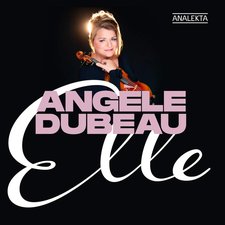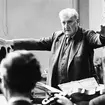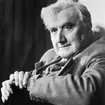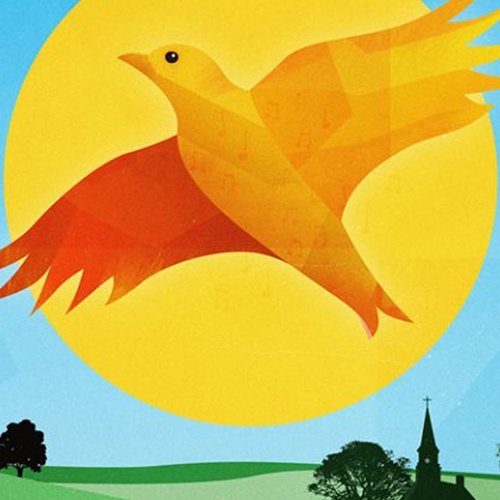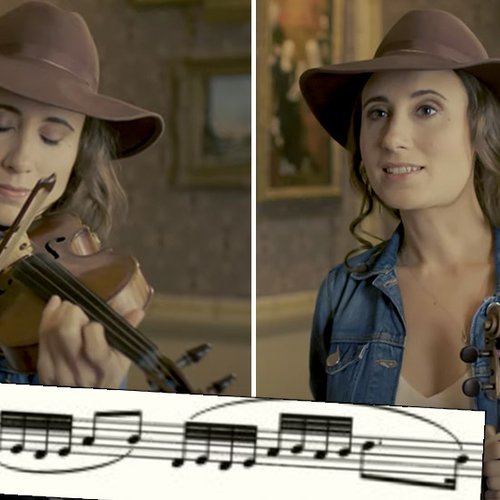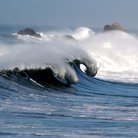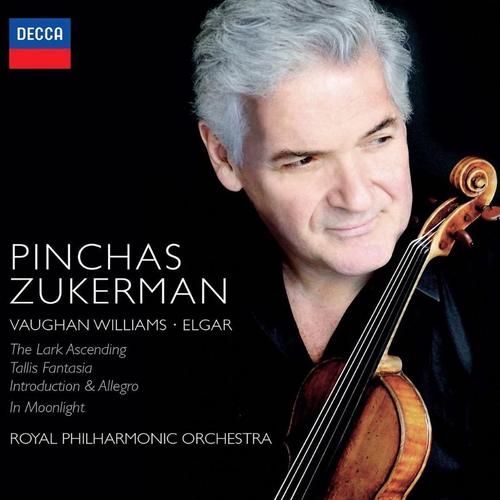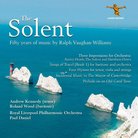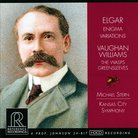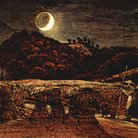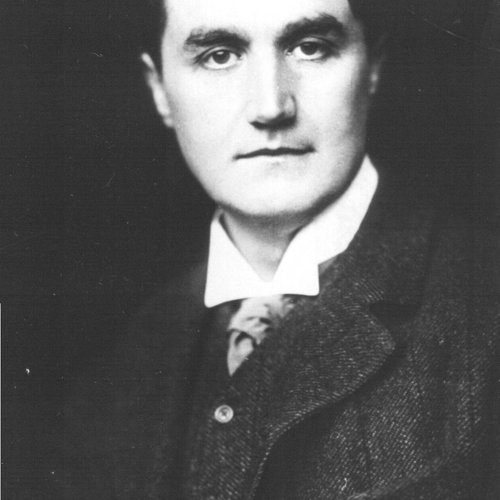10 greatest pieces of music by Vaughan Williams
11 October 2022, 12:02 | Updated: 13 October 2022, 10:39
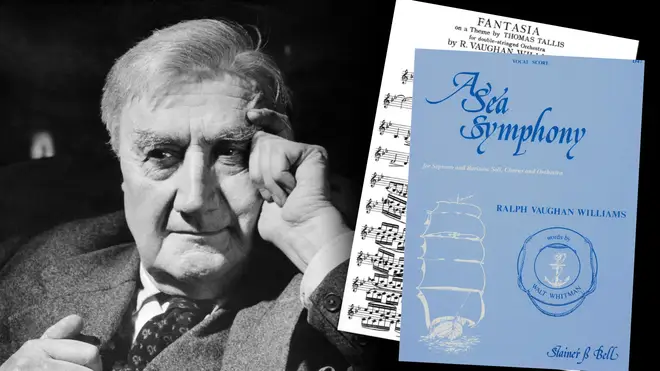
The ‘Lark Ascending’ composer wrote ravishing orchestral and choral music – here are some of his greatest works.
English composer Ralph Vaughan Williams was one of the most important figures in classical music in the 20th century.
He helped revive British music, and wrote ravishing orchestral pieces, choral music and chamber music.
His works took inspiration from sources as diverse as Tudor polyphony and English folksong, and he wrote nine symphonies, six operas, a ballet and hymn tunes as well as scores for the stage and screen.
In October 2022, as the music world celebrates the 150th anniversary of this great composer, we showcase ten of his very best works.
Read more: Why does everyone love Vaughan Williams’ The Lark Ascending?
-
The Lark Ascending
The Lark Ascending is a “pastoral romance for orchestra”, with solo violin, based on a poem by George Meredith. The writing – in the poem and the resulting piece of music – is nostalgic, and Vaughan Williams draws on folk melodies and programmatic writing that seems to trace the journey of the lark as it bursts into flight.
“He rises and begins to round, He drops the silver chain of sound,” begins Meredith’s poem. “Of many links without a break, In chirrup, whistle, slur and shake…”
Read more: 10 of Elgar’s greatest pieces of music

A beautiful moment from The Lark Ascending, performed by Jennifer Pike
-
Fantasia on a Theme by Thomas Tallis
Vaughan Williams composed his Fantasia on a Theme by Thomas Tallis in 1910, to great acclaim. It’s a one-movement piece for string orchestra, based on a tune from the 16th century written by, as the name of VW’s work suggests, one Thomas Tallis.
Tallis was a Renaissance English composer who excelled in choral music. Vaughan Williams’ take on his melody makes for an incredibly moving, rich orchestral piece that seems to positively wring out every last bit of emotion the original melody is capable of.

Vaughan Williams - Fantasia on a Theme by Thomas Tallis
-
The Wasps
The Wasps is an enduringly loved stage score of Vaughan Williams’.
It was actually commissioned by a drama committee at Cambridge University, the Cambridge Greek Play committee, who were staging Aristophanes’ work of this name.
For a long time, the overture was the big hit from VW’s full score, but in 2005 the Hallé Orchestra recorded the whole thing, introducing us all to more of the great composer’s incidental music.

The Halle - Vaughan Williams: The Wasps
-
Symphony No. 5
This symphony, written between 1938 and 1943, is Vaughan Williams’ orchestral music at its pastoral, romantic best. The composer used lots of the fine tunes in this symphony that were lying around, waiting to be used for his opera, The Pilgrim’s Progress (see below).

Vaughan Williams: 5. Sinfonie ∙ hr-Sinfonieorchester ∙ Sir Andrew Davis
-
English Folk Song Suite
Vaughan Williams was a collector of native folk tunes and, in 1923, he bundled many of these up into this suite for military band. A year later, a student of his, Gordon Jacob, arranged the piece for full orchestra.
And there’s another version for brass brand – all under slightly different names, but all with the same tunes carrying a distinctive and nostalgic English folk flavour.

English Folk Song Suite: I. March (Seventeen Come Sunday) . Allegro
-
The Pilgrim’s Progress
Vaughan Williams wrote several operas. And, though an agnostic, he was engrossed by this allegorical Christian novel and chose to set it to music.
Vaughan Williams called The Pilgrim’s Progress a ‘morality’ rather than an opera, and took years to complete it. In fact, this work shares many musical themes and melodies with his Fifth Symphony (see above), the composer plucking the best from the opera’s draft as it lay waiting to come to life.

RNCM Opera - The Pilgrim's Progress - Vanity Fair Scene
Read more: 10 of the world’s all-time great opera composers >
-
Symphony No. 1 ‘Sea Symphony’
Like The Lark Ascending (see above), Vaughan Williams’ ‘Sea Symphony’ is inspired by poetry – this time, Walt Whitman’s collection Leaves of Grass, which collects and celebrates Whitman’s philosophy of life and humanity.
It’s an epic and ravishing choral symphony, calling for the forces of a full choir alongside the orchestra, and it packs a punch from the very beginning. Marvellous stuff.

Ralph Vaughan Williams: Sinfonie Nr. 1 (A Sea Symphony) | SWR Symphonieorchester
-
Serenade to Music
Another work by Vaughan Williams for orchestra and chorus – this time 16 vocalists – the Serenade to Music plucks its text from Shakespeare’s The Merchant of Venice.
The exquisite vocal writing picks up Shakespeare’s philosophising on the ‘music of the spheres’ – the ancient concept that the movements of the Sun, the Moon and the planets create a very specific, very sublime, form of music. Expect goosebumps.

Serenade to Music by Ralph Vaughan Williams
-
Romance for Harmonica
The great English composer Vaughan Williams wrote a piece of music for the humble harmonica. Who knew?
His love of folk music, perhaps, is what helped VW fully appreciate this hand-sized instrument and give it the limelight in classical music it truly deserves – or maybe not. You decide...

Romance for Harmonica by Ralph Vaughan Williams Harmonica by Wai Hang-hay, Karmen Ng at the piano.
-
Fantasia on Greensleeves
This exquisite four-minute orchestral miniature has far eclipsed the song it was inspired by: namely, ‘Greensleeves’, a traditional melody that was doing the rounds in the days of the Tudors and which was put to masterful use here by Vaughan Williams.
In this delightful piece, he manages to capture the very essence of England in music. The serene, pastoral sounds evoke images of bucolic bliss, with lyrical string writing and particularly descriptive flute passages.

Vaughan Williams: Fantasia On "Greensleeves"
